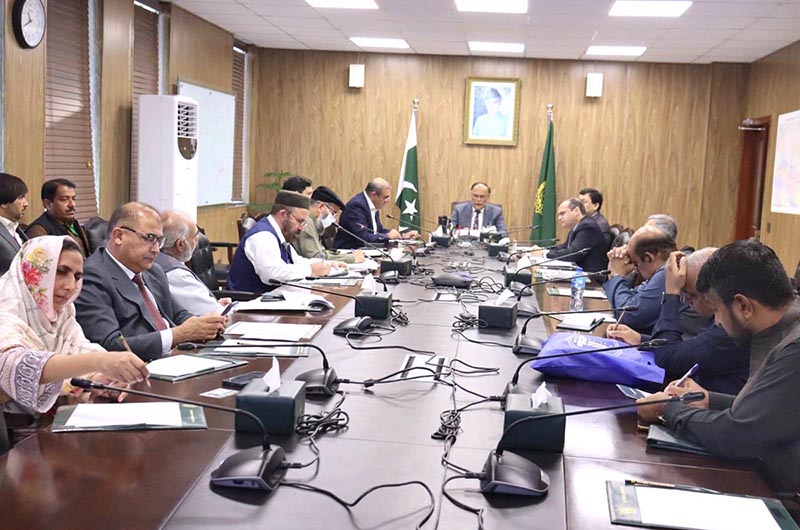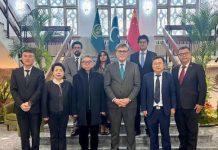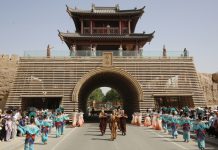
QINGDAO: Federal Minister for Power, Sardar Awais Leghari, met with the Iranian Energy Minister Abbas Ali Abadi on the sidelines of the Third Belt & Road Ministerial Conference held in Qingdao, China.
Minister Awais Leghari underscored the importance of cross-border energy projects in boosting connectivity and trade, said a press release issued here Thursday.
Both sides discussed future collaboration, particularly focusing on the development of electricity projects in Gwadar, Balochistan.
Exchanging views on the need for enhanced energy connectivity amongst the regional countries, both sides underlined the importance of strengthening energy cooperation in power plants operations and maintenance.
They emphasized the need for regular coordination and communication.Both the ministers also discussed that effective plant management was essential for sustaining energy output and meeting the growing demands of the region.
Earlier, Federal Minister for Power Sardar Awais Leghari on Wednesday praised Pakistan’s collaboration with China through the Belt and Road Initiative (BRI) for transforming the country’s energy landscape.
Speaking at the Third Belt and Road Energy Ministerial Conference in Qingdao, China, Leghari credited the China-Pakistan Economic Corridor (CPEC) with addressing Pakistan’s power shortages and laying the foundation for a greener future. “Through CPEC, we have successfully tackled electricity shortages and laid the groundwork for a greener and more sustainable energy future,” Leghari said and underscored Pakistan’s commitment to renewable energy and stressing the importance of global cooperation in the energy sector.
During his address, Leghari congratulated the Chinese National Energy Administration for hosting the event and underscored the importance of global cooperation in energy. He expressed support for the Belt and Road Green Energy Cooperation Action Plan 2024-29 and endorsed the establishment of the Belt and Road Energy Partnership’s (BREP) secretariat in Beijing. He also acknowledged its role in strengthening energy infrastructure and promoting sustainable economic growth through energy trade.
Leghari highlighted Pakistan’s energy milestones, including adding over 8,000 megawatts to the national grid through 15 CPEC projects. He noted that the second phase of CPEC, launched last year, focuses on expanding renewable energy cooperation and modernizing transmission and distribution systems. Pakistan aims to generate 60 percent of its energy from renewable sources, a goal aligned with its new national development framework, centered on five priorities 5Es: Energy and infrastructure, E-Pakistan, Equity and Empowerment, Exports, and Environment and climate change. Leghari also outlined Pakistan’s new national development framework, which is aligned with the Belt and Road Initiative (BRI). “We invite international investors to explore opportunities in Pakistan’s energy sector,” Leghari urged. “By working together, we can accelerate progress in renewable energy, improve grid systems, and ensure a secure, sustainable energy future.” Leghari also highlighted Pakistan’s openness to foreign investments in clean energy projects, such as the electric vehicle assembly plant being established by BYD in partnership with Hub Power Company. He stressed that combating climate change and ensuring energy security will require shared global efforts. “Mutual trust and cooperation are essential to building a sustainable future for all,” Leghari concluded. –Agencies





